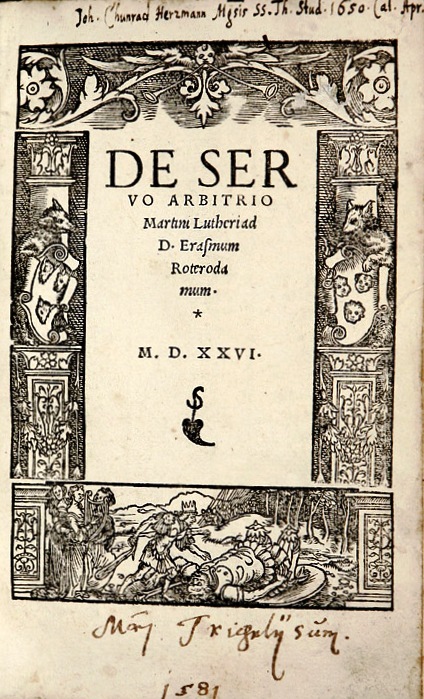Introducing the ESRs III: Giovanni Tortoriello
Giovanni Tortoriello investigates the influence of Pico della Mirandola’s thought on the Reformation and the debates of human freedom and will in the 16th century. In his introduction he tells more about his study and his experiences as an ESR in Halle.

Two Opposite Concepts of Freedom
- Giovanni Tortoriello
In 1486, in his famous Oratio de Hominis Dignitate, Giovanni Pico della Mirandola argued that God, after having bestowed to all creatures a specific gift, had no other gift to give to men. So he decided to give him something that includes all other things, freedom. Man, a microcosm in the macrocosm, thus became free to choose what he wants to be, and he became free to choose between good and evil, between animal-like life and divine contemplation. In this thinking, freedom is the main characteristic of a human being for which men are even superior to angels.
In 1521, quoting Romans 3:23 and 3:10, Luther in A Treatise on Christian Liberty, pointed out that everything in man is blameworthy and sinful. Because of this, men are doomed to damnation but, because of faith, our sins are justified by God. Faith is what sets us free.
In these two different positions, two anthropological visions from which derive two opposite concepts of freedom are confronted.
The debate on human will in the early year of Reformation
The period from Pico’s exaltation of human free will and Luther’s negation of the same concept is made up of an extraordinary cultural turmoil, which produced polemics and controversies all across Europe.
One such tension culminated in the famous debate between Erasmus of Rotterdam and Luther: In 1524, the former wrote De Libero Arbitrio in which he argued that, despite the Fall caused by original sin, man retained its freedom of choice and, thus, although barely, human will collaborates with divine grace for salvation; the latter in his De Servo Arbitrio answered by strongly rejecting every sort of human participation in his own salvation, which is instead a free God’s gift.
In my research, I am investigating to what extent different, sometimes opposite, ideas of freedom got in touch and how they influenced each other. Trying to understand ideas of freedom and human will in their proper historical context makes it possible to describe how and why some ideas were accepted, others transformed and others completely rejected and how this process contributed to shaping one of the greatest changes in the history of Western Christianity.
This study intersects with the wider aim of the ITN because the reinterpretation of authors like Origen and Augustine and their ideas of human will and freedom strongly influenced the philosophical and theological debate of the early 16th century.
2017 - the 500th anniversary of the Reformation
As is well known, on October 31, 1517, Martin Luther, at the time an almost anonymous monk, published 95 theses against the indulgences of the church, and this event is generally considered the beginning of the Reformation. So next year, the 500th anniversary of the Reformation is celebrated.
It is very stimulating tracing the ideas that lead to the Reformation at the very same university, although not in the exact same place, where everything started. Moreover, it is a great opportunity to read not only the original works of Wittenberg reformers but also all the works that the reformers read, studied and annotated. In this sense, Halle is the ideal location for investigating the abovementioned interexchange of ideas, which could be considered as the cultural and intellectual genesis of Protestant Reformation.